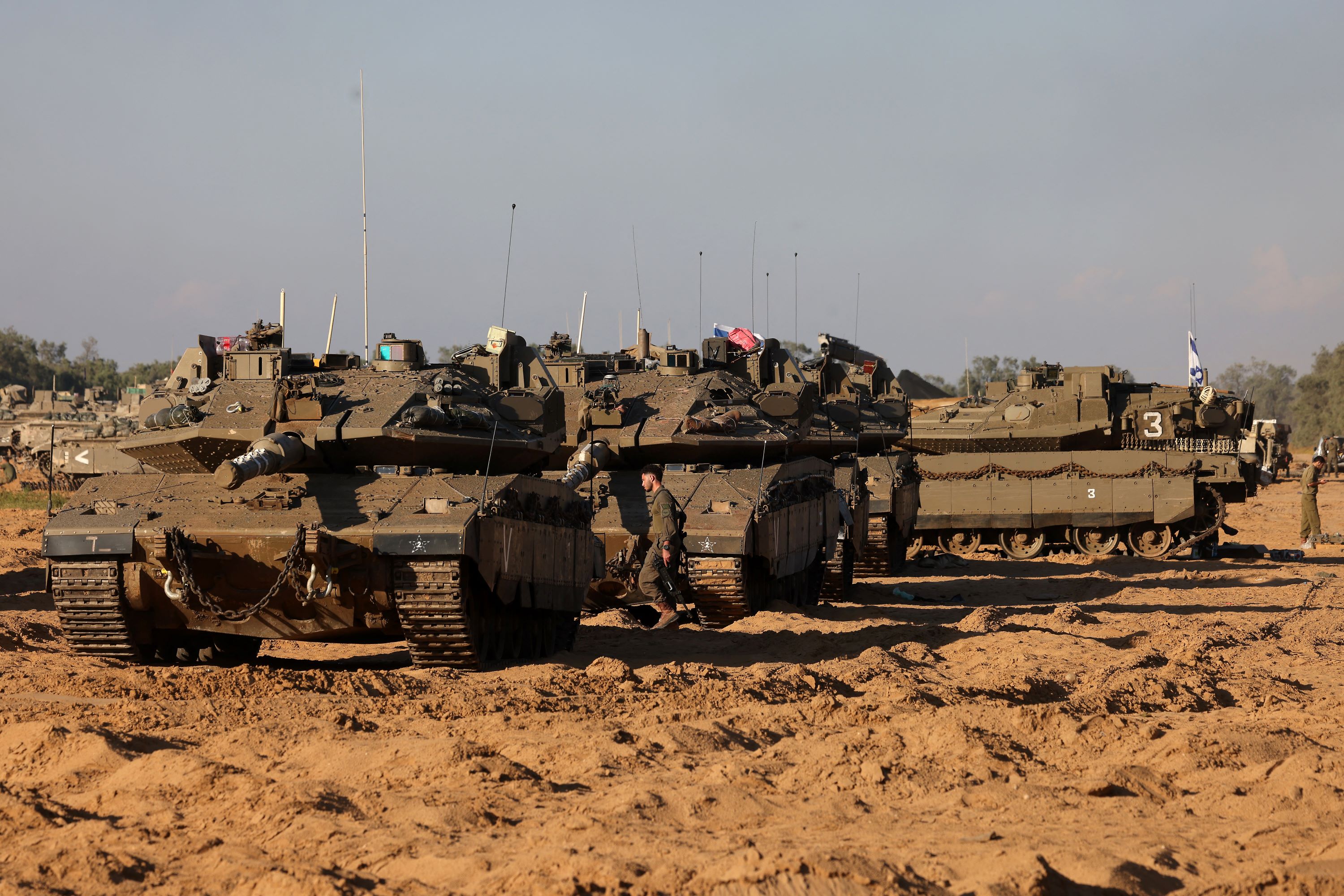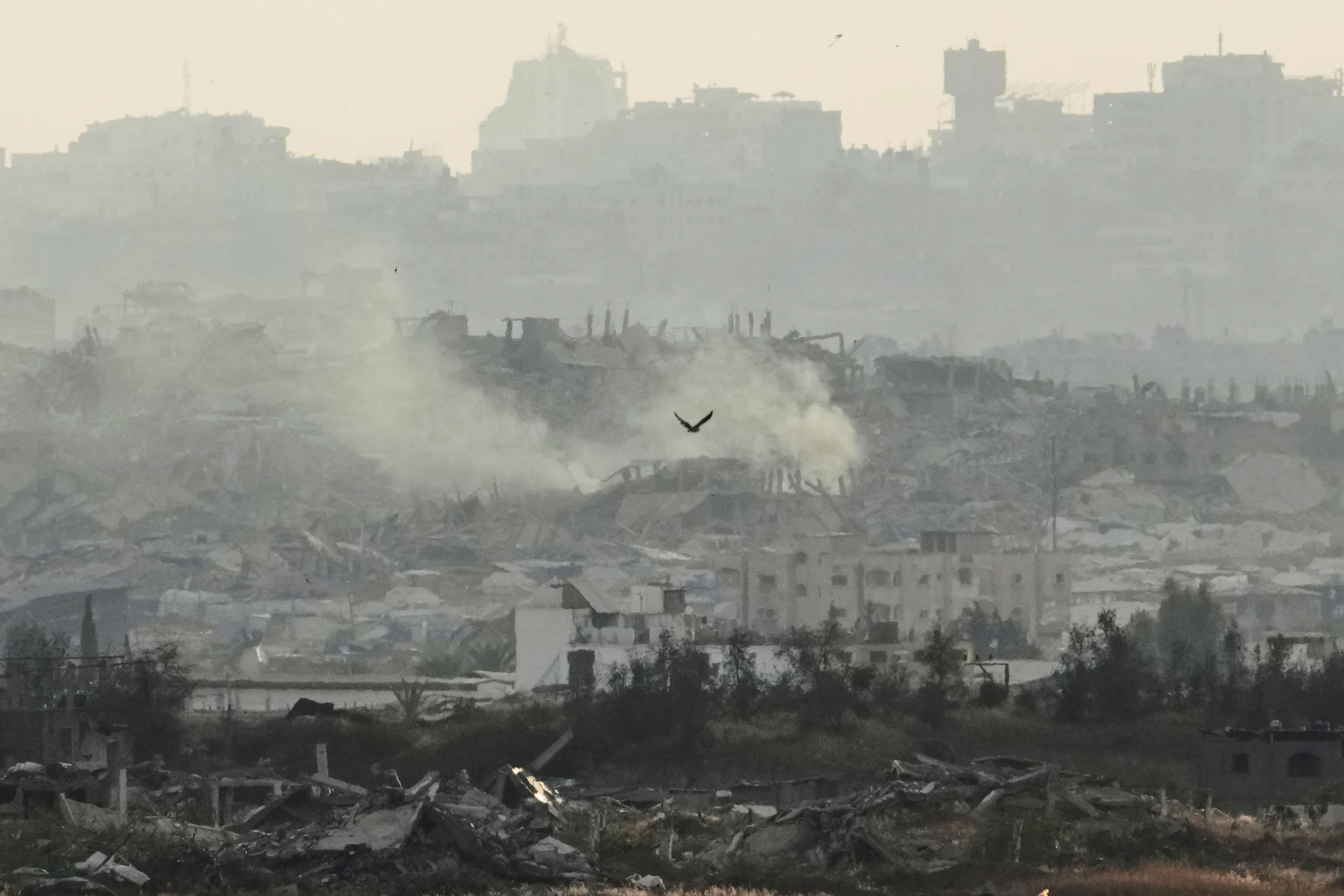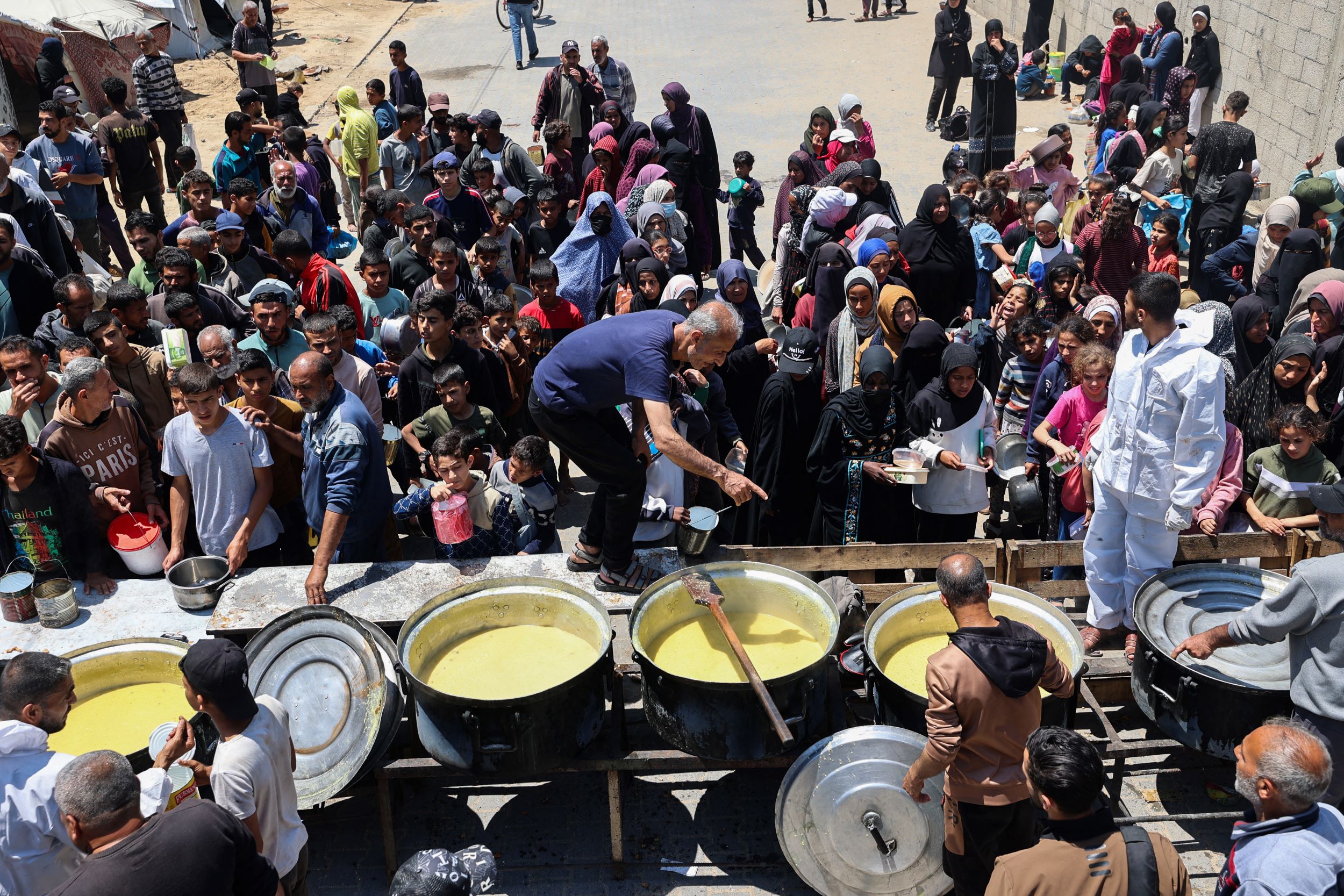
JERUSALEM/GAZA - Israel's security cabinet has approved a plan to escalate the offensive in Gaza, including the occupation of the Gaza Strip and continued control over captured areas, a senior Israeli official said Monday.
The ministers "unanimously" approved the operational plan, the official said on condition of anonymity. The vote came hours after military chief Eyal Zamir announced that "tens of thousands" of call-up orders for reservists would be issued this week to intensify the offensive.
The plan will include "occupying Gaza and holding the territories, moving the Gaza population southward for their protection, denying Hamas the ability to distribute humanitarian aid, and launching powerful strikes on Hamas -- measures that will contribute to its defeat," the senior official said.
READ MORE: Israeli army calls up tens of thousands of reservists to expand Gaza offensive
The cabinet also approved a framework for the possible future entry of humanitarian aid to the devastated enclave, which Israel has completely blockaded since March 2 following the collapse of a ceasefire agreement. It was not immediately clear when aid deliveries might resume.
Israel has defended the blockade, saying it aims to prevent Hamas from seizing control of supplies and to pressure the group into accepting a deal on Israel's terms. However, the United Nations Relief and Works Agency for Palestine Refugees in the Near East warned Sunday that the blockade has triggered a humanitarian crisis in Gaza of catastrophic levels, describing the situation as "beyond imagination".
During a meeting, Prime Minister Benjamin Netanyahu said that the new plan marks a shift in strategy, "moving from tactical raids to the occupation and continued control of territory", according to a statement by his office.
Netanyahu said he continues to promote a plan to facilitate the "voluntary departure" of Gazans and that talks are underway with several countries to receive refugees.
ALSO READ: Israeli army orders mass reservist call-up ahead of Gaza offensive expansion
He also warned that the country's new offensive in the Gaza Strip would be "intensive".
"We are on the eve of an intensified incursion into Gaza," Netanyahu said in a video posted on social media platform X, adding that the goals of the operation are to "defeat Hamas and, in the process, secure the release of the hostages".
However, the new offensive plan has sparked controversy among the senior ranks of the Israeli military.
Military chief Zamir told ministers that, according to the army's assessment, the new operation "would endanger the lives of the hostages," Israel's state-owned Kan TV News reported.
Nitzan Alon, the military's hostage affairs coordinator, echoed the concern. According to Israel's Channel 12 News, Alon also told ministers that the offensive "puts the hostages at risk".
The stronger the military strikes, "the more violent the militants become, taking out their frustration on the hostages," he said.
At least 29 Palestinians killed
At least 29 Palestinians were killed, and dozens injured on Monday in multiple Israeli airstrikes across the Gaza Strip, the Palestinian Civil Defense said.
Mahmoud Basal, spokesperson for the authority, told Xinhua that 15 bodies were recovered and over 10 people were rescued following an Israeli strike on residential apartments in the Al-Karama neighborhood, north of Gaza City. Additional strikes in the city killed five more individuals and wounded at least 10 others.
ALSO READ: Activist aid ship hit by drones on way to Gaza, NGO says
In Beit Lahia in northern Gaza, seven people were killed, while two others died in a strike west of Khan Younis in the south, according to Basal.
The Israel Defense Forces (IDF) said in a statement on Monday that the IDF on Sunday struck loaded and ready-to-fire Hamas rocket launchers in the area of Khan Younis, which were reportedly aimed at Israeli territory.

Also on Monday, the Al-Qassam Brigades, the armed wing of Hamas, said its fighters carried out an ambush targeting an Israeli engineering unit near the separation fence in the Al-Farahin area, east of Khan Younis.
According to a statement released by the Brigades, its fighters launched an anti-personnel missile at the unit, followed by close-range gunfire.
The Israeli army has not commented on the incident.
READ MORE: Israeli PM: Defeating Hamas more important than freeing hostages
Meanwhile, the International Committee of the Red Cross (ICRC) announced that it facilitated the transfer of 10 Palestinian prisoners released at the Kissufim crossing in southern Gaza to Al-Aqsa Martyrs Hospital in Deir al-Balah.
The ICRC said in a press statement that its teams reunited the detainees with their families and supported the medical examination process in coordination with the Palestinian Ministry of Health.
Window still open
Earlier in the day, a senior Israeli security official told Xinhua that Israel has given Hamas a "window of opportunity" until mid-May to reach a hostage deal before implementing the newly approved operation plan.
"There is a window of opportunity to reach a hostage deal ... before the conclusion of US President (Donald) Trump's visit to the region," he said. Trump is expected to tour the Middle East from May 13 to 16, with planned stops in Saudi Arabia, Qatar, and the United Arab Emirates, White House Press Secretary Karoline Leavitt told reporters.
The Israeli official added that Israel insists on the deal presented by Netanyahu in early March, which includes the release of additional Israeli hostages in exchange for a temporary ceasefire in Gaza and a promise to discuss a long-term truce.
READ MORE: Two-State solution 'is near a point of no return', warns UN chief
"If no hostage deal is reached, the expanded operation will begin with full intensity and will not end until all its objectives are achieved," he cautioned. "Unlike in the past, the IDF will remain in every area it seizes to prevent the return of terror activity," the official noted.

He said Israel would lift the blockade on humanitarian aid only after launching the expanded operation, and a "mass evacuation" of civilians toward southern Gaza would be conducted. Meanwhile, the aid distribution, he said, would be carried out by "civilian contractors" in "secured zones under IDF's control", including "a sterile area" to be established in Rafah, southern Gaza.
"Under any temporary or permanent arrangements, Israel will not withdraw from the security buffer zone around Gaza," he said.
On Monday, Hamas denounced Israel's new aid distribution plan as "political blackmail". In a press statement, Hamas argued that the plan would convert humanitarian aid into a political tool, violate international law, and contribute to "starvation and forced displacement" in the coastal enclave. Notably, the faction has yet to make a response to the Israeli threat to expand its military campaign.
READ MORE: Israel says it carried out over 50 airstrikes in Lebanon during April
Israel has prevented goods and supplies from entering Gaza since March 2, after the first phase of a January ceasefire agreement with Hamas expired. It argued that the aid blockade aims to prevent Hamas from seizing control of supplies and to pressure the faction into accepting its offer for extending the first phase of the truce deal.
On March 18, Israel resumed military assaults in Gaza, effectively ending the phased truce. According to an update by the health authorities in Gaza on Monday, the renewed Israeli strikes have killed 2,459 Palestinians in Gaza, bringing the overall death toll since the conflict began in October 2023 to 52,567.
Several rounds of mediated talks have been held recently, but all have failed to restore the Gaza ceasefire due to differences between the parties.


